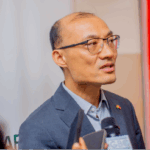
The digital age has changed the way healthcare brands interact with their audiences in Ghana. From Accra and Kumasi to rural communities, patients are turning to digital platforms for health education, appointment scheduling, and even telemedicine services.
WhatsApp, Facebook and Instagram are fundamental to daily life in Ghana, with over six million active social media users by 2024. Meanwhile, mobile apps and websites are increasingly important touchpoints for delivering healthcare.
However, the digital landscape in Ghana is distinct, shaped by factors such as limited internet infrastructure in rural areas, diverse linguistic needs, and varying levels of digital literacy. To thrive, healthcare companies must employ methods that are accessible, culturally sensitive, and aligned with local realities.
This article explores six practical techniques for enhancing your healthcare brand’s visibility and credibility in Ghana’s digital landscape, enabling you to establish meaningful connections with patients and stakeholders.
Social media for engagement
Social media is a powerful tool for building trust and community in Ghana.
WhatsApp and Facebook are popular platforms for sharing information and social engagement.
Healthcare brands can develop engaging content that resonates with local consumers, such as health advice, live Q&A sessions with doctors, or patient testimonials.
For instance, short, educational videos in local languages like Twi, Ga, or Ewe could address common health issues, such as, malaria or maternal care.
Collaborating with local influencers who have large followings can help you widen your reach.
Since most Ghanaians access the internet via smartphones, ensure your content is mobile-friendly.
User-friendly website
A professional, easy-to-navigate website forms the foundation of your online presence.
In Ghana, where mobile data costs can be high, ensure your website is lightweight and optimised for low-bandwidth conditions.
Include features such as online appointment booking, teleconsultation, and a resource section with health information tailored to Ghanaian needs, like managing chronic diseases such as hypertension or diabetes.
To reach a diverse audience, incorporate local languages or bilingual content.
Example, an Accra hospital might provide content in both English and Ga to engage a larger population. Trust is vital in healthcare, so ensure your website is secure and has clear privacy policies.
Telemedicine
Telemedicine is an important advancement in Ghana, where access to healthcare often remains limited in rural and remote communities.
By offering virtual consultations through secure platforms, healthcare providers can bridge geographical distances and deliver care to patients who might otherwise face long travel times.
For example, a clinic might use WhatsApp Business or a dedicated app to organise teleconsultations, dispense medications, and monitor treatment progress.
To reach rural populations, promote these services via community radio or social media.
To tackle digital literacy barriers, provide simple guides or video tutorials on how to use telemedicine platforms.
Improve visibility
Google is the most popular search engine in Ghana for health-related queries, including finding the nearest clinics and studying symptoms.
Optimising your website for local SEO ensures that your brand appears first in search results. To attract local traffic, use keywords such as “best hospital in Accra” or “affordable healthcare in Kumasi”.
Create content that addresses common health concerns in Ghana, such as malaria prevention or maternal health, to improve your search engine ranking.
Additionally, add your brand to Google My Business with accurate information such as location, hours, and contact details information.
Personalised experiences
Mobile apps offer a direct way to engage patients in personalised healthcare services.
In Ghana, where smartphones are widely used, a branded app can provide features such as appointment reminders, health tracking tools, and prescription notifications.
For example, a pharmacy chain could develop an app that allows customers to order prescriptions, track deliveries, and receive loyalty discounts.
Because internet connectivity can be unreliable, ensure the programme is easy to use and supports offline functionality. Push alerts can keep patients informed about health initiatives or new services.
Digital health campaigns
Collaborating with local organisations, such as non-governmental organisations, community groups, or government health initiatives, can help your brand reach a larger audience.
For example, working with the Ghana Health Service on a digital campaign to raise vaccination awareness can enhance your credibility and reach.
Use social media channels like Twitter (X) or Instagram to share campaign updates, infographics, and success stories.
Involve community leaders or traditional authorities to support your projects, as their influence is significant in Ghanaian society.
Conclusion
Positioning your healthcare brand in Ghana’s digital age requires a strategic approach that combines technology with culture and local knowledge.
Your brand can build trust, improve accessibility, and increase relevance by leveraging social media, designing user-friendly websites, adopting telemedicine, optimising for local SEO, using mobile applications, and partnering with local organisations.
These strategies not only enhance your digital presence, but also address the needs and expectations of Ghanaian patients.
As the digital landscape evolves, remaining adaptable and patient-focused can help ensure your brand’s success in this changing market.
******
The writer is a lecturer/coordinator (MA Brands & Communication/MBA Corporate Communications),
University of Professional Studies, Accra.
E-mail: [email protected]
- President Commissions 36.5 Million Dollars Hospital In The Tain District
- You Will Not Go Free For Killing An Hard Working MP – Akufo-Addo To MP’s Killer
- I Will Lead You To Victory – Ato Forson Assures NDC Supporters
Visit Our Social Media for More




